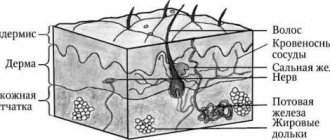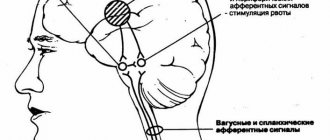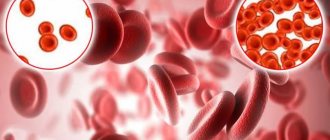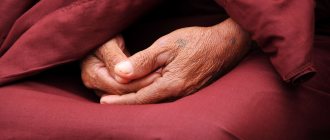Weather dependence manifests itself not only in people with mental disorders, but also in many completely healthy people. Every person knows that incredible surge of strength that occurs when the weather is clear outside. And also the opposite feeling - a feeling of drowsiness and apathy
in cloudy weather.
However, there are cases when a person is subject to the weather beyond all measure, beyond reasonable limits. In these cases, they say that the person has developed meteoneurosis
. Let's try to figure out whether this is really a mental disorder or is it a common thing that should not be considered a deviation from the norm.
Meteoneurosis and weather dependence - what's the difference?
As mentioned above, many people feel very unwell during bad weather. This is especially evident during a sharp drop, change in atmospheric pressure and, of course, during so-called “magnetic storms”. The largest group of people at risk are those patients who suffer from diseases of the nervous, musculoskeletal, cardiovascular and digestive systems.
Thus, in patients with severe hypertension, during the passage of various cyclones, the approach of a hurricane or solar flares, the pressure rises greatly. During the same period, ulcer sufferers experience stomach problems. But it is especially difficult for people who have suffered meningitis in the past. During any of the listed natural phenomena, such patients suffer from severe headaches. Patients with arthritis also do not stand aside; their weather dependence manifests itself through terrible pain and aches in the joints.
In fact, the development of weather dependence as a psychiatric diagnosis begins only when weather changes begin to influence the exacerbation phases of real-life somatic diseases.
What is weather dependence
Weather dependence is the body's reaction to changing weather. Modern medicine does not recognize the official diagnosis of “meteosensitivity”. Almost imperceptible discomfort in response to sharp alternations of warm and cold temperatures, strong winds, atmospheric pressure, heat, humidity or disruption of the earth's geomagnetic field is inherent in us from birth and usually passes quickly. This is a sign that the body is functioning normally and is able to adapt to the environment. This sensitivity to the weather is common to many people [1], since humans are part of nature, and we are closely related to its changes.
Most often, residents of large cities complain about it, where people move little, are rarely outdoors, and are accustomed to creating a comfortable temperature with the help of air conditioners and central heating. Because of this, the natural ability to adapt is reduced and changes in weather can affect well-being.
According to doctors, weather dependence in itself is not a disease, but atmospheric fluctuations intensify the symptoms of existing diseases. Therefore, it is important to understand what happens to the body during weather changes and how to help yourself and your loved ones.
Nobody likes sudden changes in weather, but sensitive people may experience more serious problems. At temperatures above 30°C or humidity above 70%, the thermoregulatory system attempts to cool the body, which adds stress to the cardiovascular system.
Heat leads to vasodilation, increased sweating also reduces the volume of circulating blood, which can cause a decrease in the flow of blood and oxygen to the brain.
Recent studies in Germany and the USA have shown that cloudy and cold weather can cause bad mood, and also increases the frequency of angina attacks, strokes, and heart attacks. Perhaps this is due not only to symptoms of depression, but also to an increase in blood viscosity.
Degrees of weather dependence
Depending on the severity of symptoms, there are three degrees of meteorological dependence:
- mild (manifested only by subjective malaise);
- moderate (manifested by distinct objective symptoms - fluctuations in blood pressure, heart rhythm disturbances, fluctuations in body temperature);
- severe (manifested by pronounced disorders that depend on the initial state of the body, age, presence of chronic diseases and their nature);
There is evidence that about 30% of people are truly dependent on the weather (have a moderate or severe degree of meteorological dependence) [2].
Meteoneurosis - disease or simulation
Let's look into this burning issue. Most people consider meteoneurosis to be an ordinary simulation. In most cases, the reason for doubt is that it is impossible to provide real evidence of a connection between weather changes and exacerbations of diseases.
As an example, let's consider a patient suffering from arthritis. With sudden changes in the weather, such a person’s joints begin to ache, they literally begin to twist, but the X-ray images do not show a single hint of any changes. Now let's look at another case. The patient complains of terrible pain in the head and painful cardiac compression, but again, neither an ECG nor a cardiogram can confirm this. Moreover, both devices show excellent data, and the pressure is also normal. And the last case. The patient complains of nausea and twisting in the abdomen, but the best gastroenterologists examine him and cannot identify any pathologies.
Having familiarized yourself with such cases, you might think that meteoneurosis is ordinary laziness and simulation. But, alas, not everything is so simple. Psychotherapists and psychiatrists unanimously assert that in reality, weather dependence is a manifestation of the disease at the psychological level. Recently, meteoneurosis has been officially considered a disease and is recognized by medical communities in almost all countries of the world.
It turns out that the reason for this condition is connected with the person’s subconscious - just as it happens with any neurosis. The answer to possible relief from meteoneurosis lies not in all kinds of tests, but in the head. Let's consider this picture: in childhood, a child saw one of his parents complaining about poor health, which was allegedly associated with a change in weather, and the child's brain retained this event, the cause-and-effect relationship was deposited in the subconscious. It turned out to be a kind of stereotype that any sudden changes in weather should lead to poor health, laziness and apathy
.
So what should you do if you feel like the weather is having a big impact on you?
Try keeping a journal of how you feel. If deterioration occurs, write down what exactly hurt, what the weather was like at that moment and other factors that you consider important. Then, after analyzing the data for a more or less long period, you will be able to predict in advance an attack of poor health, which means taking preventive measures. In addition, such a diary will become an invaluable source of information if you decide to see a doctor.
Hardening, physical activity, proper nutrition - all this will be good prevention. Try to get a good night's sleep. You can add chamomile, mint to tea, brew rose hips, or resort to other soothing and relaxing remedies. It is also better to give up alcohol and limit the amount of coffee, tea and other stimulants.
How to deal with meteoneurosis?
In most cases, ordinary doctors cannot help with meteoneurosis. The trouble is that the cause of unpleasant sensations is not in diseases of the organs, but in psychology, in the subconscious. Need help from a psychiatrist or psychologist. Visits to “regular” doctors only aggravate the situation and lead to even greater apathy
.
A psychotherapist or psychiatrist will help you understand the psychological conflict that caused meteoneurosis. After an appropriate course of treatment, symptoms may significantly weaken and, in some cases, disappear altogether.
It is also known that there are ways to independently relieve the symptoms of weather dependence. In particular, the patient should exercise regularly and follow a daily routine, as well as regularly and a lot of walks in the fresh air. Gradually, the intensity of physical activity must be increased - it is they that contribute to the normalization of the autonomic nervous system.
Weather sensitivity index: how to determine
If earlier many doctors dismissed patients who complained of deterioration in health due to weather changes, now it is customary to carefully examine them and even calculate the meteosensitivity index.
The meteosensitivity index (meteotropic index) is a general medical assessment of the patient’s meteolability (sensitivity to changes in weather conditions).
To determine the level of weather lability, doctors are guided by a set of specific clinical criteria. Most often, the 10 most popular questions are used to collect anamnesis:
- complaints when weather or climate changes;
- decreased activity;
- deterioration of health;
- tendency to depression;
- anticipation of a change in the weather situation: signal reactions of the body even before the weather changes;
- repeatability of the same signs in a specific weather situation;
- synchronicity of meteorological reaction with other weather-sensitive people;
- normalization of well-being in favorable weather;
- short duration of deterioration;
- absence of other reasons for exacerbation of the disease or deterioration of the condition.
If a patient has 5 or more signs out of 10, they say that he has increased weather sensitivity. In addition, to determine the nature of meteosensitivity, a person may be asked to undergo several laboratory tests. As a rule, doctors are interested in heart rate, blood pressure, platelet and leukocyte counts, blood clotting rate, changes in cold testing and some other indicators, which are measured twice: during periods of good health and during unfavorable weather conditions.
Glossary of terms
In this section we have collected all the terms that you might encounter in this article. Gradually, we will collect from these explanations a real dictionary of a narcologist-psychiatrist. If some concepts remain unclear to you, leave your comments under the articles on our site. We will definitely help you figure it out.
Apathy
- a state of indifference and indifference towards everything in the world.
Emotions do not manifest themselves at all or are manifested weakly, the patient does not strive for any activity, his volitional activity decreases ( apato-abulic syndrome
).
Why do we react to the weather?
The human body is designed in such a way that it is able to resonate to any changes in weather conditions. Any weather changes do not go unnoticed by our body. The reason for this relationship is usually called our nerve receptors, which, like antennas, detect weather changes. As a result, the entire body adapts to certain signals from nerve cells, and in this case, organs and systems temporarily switch to functioning in a state of stress, that is, “increased combat readiness.” The outcome of such events is easy to predict: the most weakened systems begin to malfunction. In some people the cardiac system reacts, in others the nervous system reacts, and still others complain of digestive problems.
But here’s the question: why do some react extremely painfully to changes in weather, while others don’t even notice weather vagaries. The whole reason is the body’s ability to adapt and adapt to natural phenomena. If the adaptation mechanisms in the body work properly, then the person does not react in any way to changes in the weather outside the window. Otherwise, we have to talk about weather dependence or weather sensitivity.
Skin-allergic meteotype
People belonging to this type literally feel with their skin that something wrong is happening in nature: excessive cold, sharp wind or scorching sun rays provoke skin problems. Symptoms of weather dependence of the skin-allergic type:
- skin rashes,
- redness,
- skin itching.
What will help: take a 10-minute bath with a decoction of sage, celandine, St. John's wort, chamomile flowers, valerian; give up citrus fruits, alcohol, chocolate.
© PIKSEL/Getty Images/iStockphoto weather dependence in adults causes and treatment
Treatment of weather dependence with folk remedies
People have their own means of relieving the condition of weather dependence.
- Take pine baths. 1-2 tbsp. spoons of pine extract per bath, duration 10-15 minutes, water temperature 35-37 degrees Celsius. The course of treatment is 15-20 procedures.
- Prepare a decoction of rose hips. Brew rose hips in a thermos, drink the broth hot throughout the day, with the addition of honey.
- During the day, you can also take tonic tinctures of ginseng, Chinese lemongrass, and eleutherococcus.
- At night, drink sedative herbal teas from mint, lemon balm, linden blossom, and chamomile.
- Sedatives of plant origin (valerian, motherwort, hawthorn) will also help.
- If your headache is just starting, try mint milk. It is prepared as follows: immerse dried mint leaves (1 tsp) in 200 ml of hot milk for 5 minutes. Then remove the leaves, let the milk sit for another half hour, strain and drink.
More useful materials about health can be found in our channel on Yandex.Zen.
↓ expand ↓
Vegetative-vascular meteorological type
Some weather-sensitive people may show signs of hypotension. Symptoms of weather dependence according to the vegetative-vascular type:
- weakness, fatigue,
- pressure reduction,
- bruises under the eyes,
- swelling, sweating,
- chilliness,
- headache and palpitations
What will help: protect yourself from overwork and stress, set aside time for both work and rest, do not abuse coffee, alcohol and cigarettes, take up swimming or hydrotherapy, after consulting a doctor, you can take eleutherococcus or ginseng.
Bottom line
The human body, and other animals too, has evolved in such a way that the state of its internal environment depends as little as possible on the state of the external one. Maintaining constant conditions within the body is called homeostasis, and this is the basic property of all living things. Meteorological dependence contradicts the “principles” of homeostasis, which means that if it actually arose, it would be quickly destroyed by natural selection.
If you carefully read the available scientific articles published in peer-reviewed journals, it turns out that dependence on the weather is not a matter of physiology, but of psychology, which means that it can be controlled and reduced, improving your state of mind. And here is another confirmation. Thematic Russian-language articles for a wide range of readers note that, in addition to the obviously chronically ill, people most often suffer from meteorological dependence and women during menopause. The naked eye can see how these groups are similar. Both of them often experience mood swings. Maybe their sudden deterioration in health is not related to the weather at all, but to emotions? This possibility cannot be excluded.
The advice given by “expert doctors” to get rid of weather dependence really works. To feel good, you need to walk more often and, in principle, move more, eat well, get enough sleep, do what you love, in the end. Only all these preventive measures are aimed primarily at maintaining the psyche in good condition, and not at all at some mysterious physiological processes for which science supposedly has not yet found not only an explanation, but also a name.
Cardiorespiratory weather type
A magnetic storm or other weather phenomena often causes cardiac disturbances. Symptoms of meteorological dependence of the cardiorespiratory type:
- cardiopalmus,
- dyspnea,
- tingling behind the sternum and under the left shoulder blade,
- pain in the heart area
What will help: drink warm tea with mint and honey, do not overuse coffee. If you have serious cardiovascular diseases, it is better to consult your attending cardiologist. About 70% of heart attacks and hypertensive crises occur on days that are unfavorable for magnetic storms.
© Getty Images/Digital Vision weather dependence in adults causes and treatment










